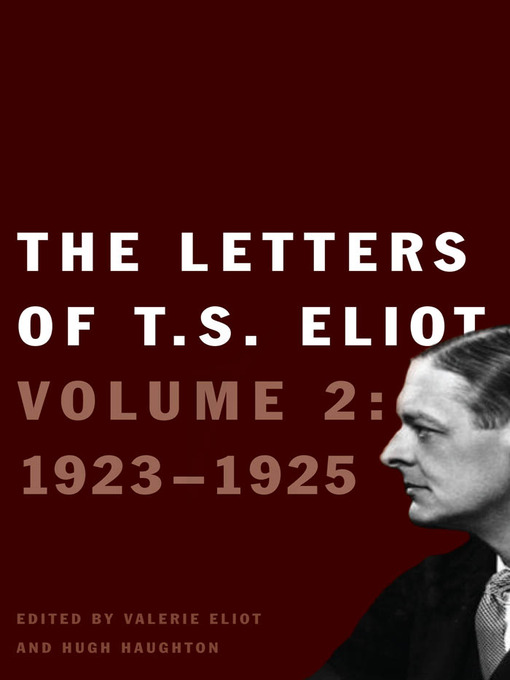
The Letters of T. S. Eliot
Volume 2: 1923-1925
- اطلاعات
- نقد و بررسی
- دیدگاه کاربران
نقد و بررسی

July 23, 2012
Spanning only two years, this volume of Eliot’s correspondence is prodigious in all things, not least intellect, beauty, personality, and size. Only four years after the publication of The Wasteland, the increasingly more famous Eliot is pulled in several directions by his poetry, the articles and reviews with which he made a living, and time-consuming editorial duties for the journal The Criterion. This was an emotionally intense time, as Eliot became a British citizen and converted to Anglicanism, a decision whose theological basis he explores in his letters. Complicating matters further was Eliot’s marital life, as his wife Vivien’s psychological instability required frequent hospitalization and treatment. But Eliot found some solace in writing to his brother, Henry, as well as to his mother, to whom he sent all of his work before publication and with whom he felt freer to discuss his emotional state. The biggest draw, of course, is the poet’s extensive correspondence with intellectuals of the time, including Ezra Pound, Wyndham Lewis, Marianne Moore, Virginia Woolf, Robert Graves, Bertrand Russell, and Jean Cocteau. Helpfully, the editors have done a fine job in providing extensive footnotes that elucidate each letter with vital background information and context. However, the nonspecialist may want to wait for the abridged version.

September 19, 2011
Selected and edited by his wife, with expert help from Haughton (The Poetry of Derek Mahon), this capacious edition includes letters discovered since the original publication in 1988 that fill important gaps in the literary record, with minor additions fleshing out this retrospective tome of introspective delight. Contextualizing Eliot's creativity is an asset since love, marriage, and war feature prominently in his narrative. Intimate revelations to nearest and dearest will enthrall: "PS I think I am the only man in this college who takes cold baths." Kinship with Ezra Pound eulogizes the editorial process of The Waste Land, while reading Parisian correspondence with Alain-Fournier discussing Verlaine and Huysmans feels like prying, but is all the more exhilarating as a result. Affectionate banter with close friend Jean Verdenal (to whom he dedicated Prufrock) broaches everything from vegetarianism to Wagner. Despite an undercurrent of melancholy, moments of hope and jubilation, as well as evidence of unparalleled intellect and myriad indiscriminate emotions create a candid portrait of an artist as a young man. If a picture paints a thousand words, the letters of a fine poet conjure a thousand fascinating still lifes.

October 15, 2011
The letters, most written by Eliot but some written to him and some between related third parties, cover the first half of his life and provide rare insight into this important figure who shaped modernist literature and criticism. Eliot's intellectual ambition and humor are clear even in his St. Louis childhood, during which he studied the classics and several foreign languages. The correspondence narrates his move to England, his shifting religious views, and his famously problematic first marriage, and contains drafts of poems that cannot be found elsewhere. The letters also chart the evolution of his relationships with other authors, notably Ezra Pound, to whom he dedicated The Wasteland. The first volume was originally published in 1988. The second volume, receiving U.S. publication for the first time after its UK publication in 2009, is an impressive piece of scholarship 13 years in the making, again edited by Valerie Eliot, the poet's widow and literary executor, and Haughton (English, Univ. of York; The Poetry of Derek Mahon). VERDICT With extensive annotations placing each letter in context, and with 200 additional letters in the revised first volume, these are important additions to any academic or research library.--Kate Gray, New York
Copyright 2011 Library Journal, LLC Used with permission.




دیدگاه کاربران